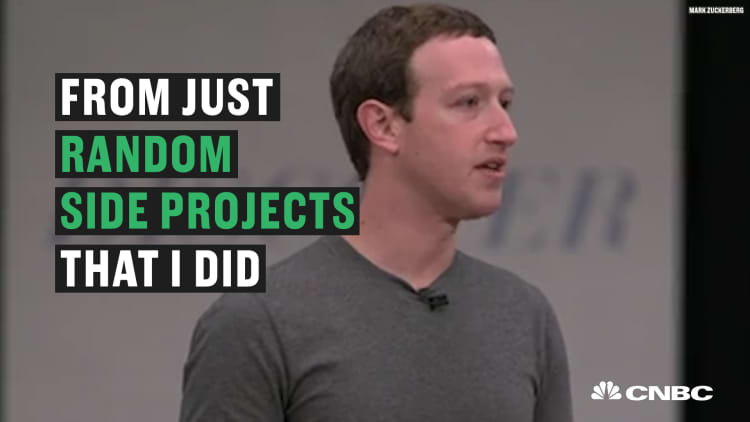It may seem counter-intuitive that if you want to get ahead at work, you should make time for a life outside of it. But career coaches and business leaders alike say that having a hobby is key to being able to handle work-life stress and thinking creatively.
Take Facebook co-founder and CEO Mark Zuckerberg, for example. He says that having a hobby shows a prospective employer that you have passion and drive. In fact, it's a question recruiters for the company will often ask job candidates.
If boosting your chances of landing a job at a company like Facebook isn't enough reason to take up a hobby, here are three science-backed ones:
1. Better work performance
Having a hobby outside of work could help you perform better 9 - 5. A study of 400 employees published in the Journal of Occupational and Organizational Psychology finds marked differences between those who engage in creative hobbies and those who do not.
Having a creative hobby is associated with positive work-related traits, like creativity on projects and a better attitude on the job.
Other research shows that employees with hobbies are more satisfied with their jobs and have a lower likelihood of burning out.
2. Improved physical health
Your hobby doesn't have to be physically demanding to correlate with better health.
A study conducted by several psychologists of about 1,400 people found that people who said they engaged in enjoyable leisure activities had lower blood pressure, total cortisol, waist circumference and body mass index.
In other words, even low-movement hobbies like knitting, crafting and guitar are connected to better health.
3. Reduced stress
Engaging in a mentally stimulating hobby reduces stress, according to research by Matthew Zawadzki, a health psychologist at the University of California, Merced.
Zawadzki's study shows that leisure activity can provide immediate stress relief, which has been shown to have numerous health and psychological benefits, like improved focus, happiness and a longer life.
The benefits of engaging in a hobby extend to hours, even days later. Zawadzki's study finds that people with hobbies continue to be happier and to experience lower levels of depression and negative feelings after practice ends.
"We're still talking about the short term, but there was a definite carryover effect later in the day," he says in a university publication. "If we start thinking about that beneficial carryover effect day after day, year after year, it starts to make sense how leisure can help improve health."
Another study comes to a similar conclusion. Research published in the National Library of Medicine shows that regular leisure activities helps a person manage negative feelings like stress.
This is an updated version of a previously published article.
Like this story? Like CNBC Make It on Facebook.
Check out Warren Buffett's reading routine could make you smarter, science suggests




